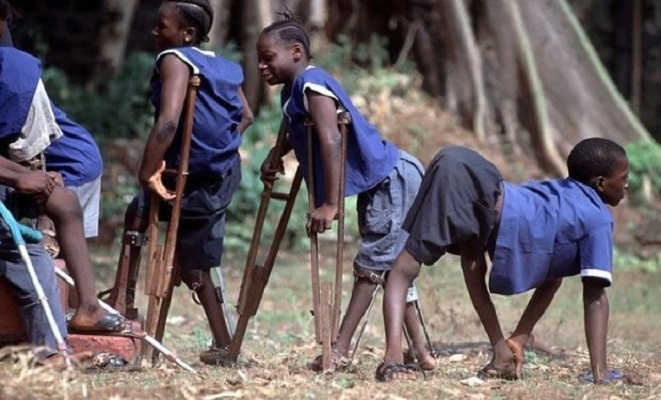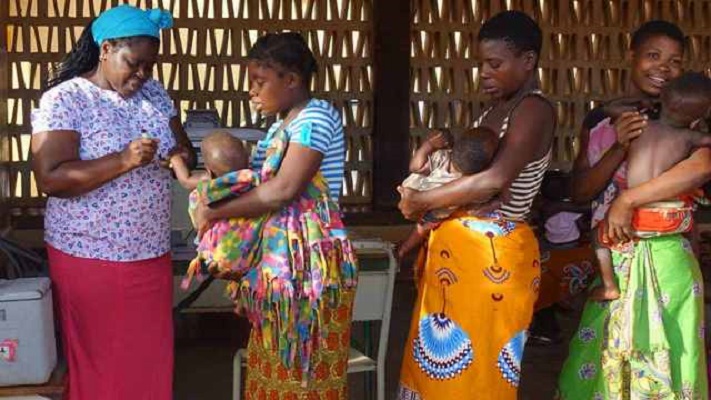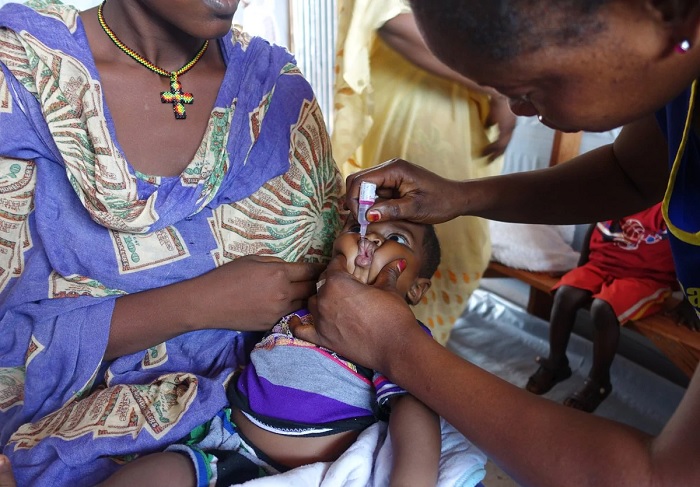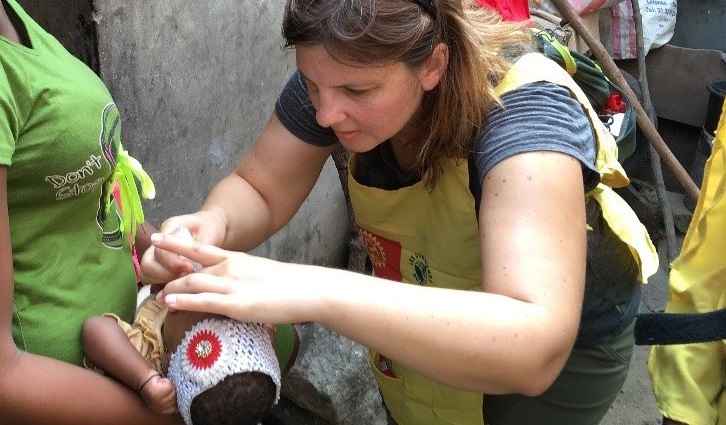There was a big happy news from Africa in this pandemic time. The continent beats Polio disease, according to the official announcement from WHO, on August 25. While the continent shows signs of relaxation, the UAE has an unquestionable role in eradicating Polio from Africa. With crucial support from the Emirates, 25 million children were immunized in the Horn of Africa helping to stop an outbreak in 2013 and 2014.
On August 25, Africa declared victory over wild poliovirus, which once paralyzed 75,000 children on the continent annually. Now four years have passed since wild polio was last detected in Africa. After a year of rigorously evaluating polio data from all 47 WHO African Region countries, an independent body of experts announced during a virtual certification ceremony this week that they are wild polio-free.

The magnitude of this achievement cannot be overstated. And amid Covid-19, it should inspire confidence in the region’s ability to overcome even the most formidable public health challenges.
The benchmarks
In 1996, African heads of state committed to eradicating polio during the 32nd Ordinary Session of the Organisation of African Unity in Yaounde, Cameroon. In the same year, Nelson Mandela launched the “Kick Polio Out of Africa” campaign, with the support of Rotary International.
African nations answered his call, setting in motion historic levels of international co-operation. In 2000, the first multi-country synchronised polio vaccination campaigns reached 76 million children across 17 countries in West and Central Africa. Two million of these children had never been vaccinated.

After sixteen years and billions of vaccinations, the last wild polio virus outbreak in African continent was reported at northern Nigeria in 2016. Four years from then, there are no cases.
The campaigns
Multi-country campaigns on this scale are extraordinarily complex. Each country’s surveillance and vaccination teams must work with their counterparts to plan and implement campaigns over vast areas, using detailed micro-planning to ensure every settlement is reached.
The diversity of Africa’s terrain, cultures and languages, along with disruption of health systems due to mass migration, conflict and climate change, have created additional challenges.
While the last outbreak in Nigeria, the region rapidly mobilised a response. With support from the Global Polio Eradication Initiative (GPEI), a special task force was set up to help Nigeria, Niger, Cameroon, Chad and the Central African Republic coordinate and roll out an emergency outbreak response campaign to reach 45 million children.

Africa’s polio eradication programme responded to these obstacles by constantly innovating and adapting its strategies. The programme developed a unique technique to reach children in insecure areas of the Lake Chad basin. Special transit teams were established in fixed locations with heavy traffic, like markets and border checkpoints.
In 2017 alone, transit teams stationed in just one Nigerian city vaccinated 2,99,000 children moving out of conflict-afflicted areas of Borno State. The infrastructure and expertise developed to fight polio have played a major role in strengthening other health services across the region.
Today, the polio programme is playing an important role in Africa’s fight against Covid-19. Polio staff and resources are supporting countries to co-ordinate outbreak response, educate the public and conduct contact tracing, data management and surveillance.
But WHO officials warn that this is no time to relax. People must be vigilant, as polio cases are still being reported from children in Pakistan and Afghanistan. In the early 2000s, international spread of wild polio from India to several African countries showed how easily the virus can reappear if we let down our guard down.




![The Top & Most Popular Seafood Bucket Restaurants in Dubai for you [Never Miss]](https://uae24x7.com/wp-content/uploads/2020/09/8-seafood-in-a-bucket-scaled-e1600739237403.jpg)
![Procedures for Renewing the Driving License in Abu Dhabi [3 Simple Steps]](https://uae24x7.com/wp-content/uploads/2020/07/Capture-9-e1595666454466.jpg)





